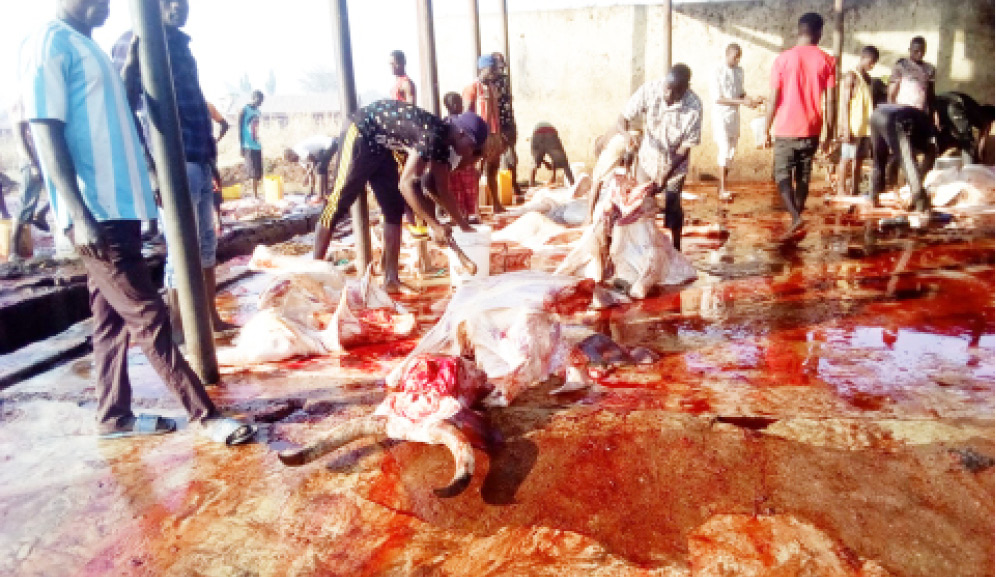Butchers in Suleja council, Niger State and neigbouring Federal Capital Territory (FCT), have decried the cost of doing business following the banning of livestock markets in some North West and North Central states, of the country.
State governments in Kaduna, Katsina, Niger, Sokoto and Zamfara have announced the ban of transportation of livestock as well as the closure of some livestock markets as part of measures to deal with banditry in the states.
- God did not make mistake bringing us together as Nigerians – Sultan
- PODCAST- ‘How And Why I Thought Of Knifing Myslef To Death’
A butcher at Suleja abattoir in Niger State, Umar Sani, said they usually travel to Katsina State, and many other livestock markets within to buy livestock.
“We used to buy livestock from Tungan-Kwasa and Kuta under Paikore, and Wushishi local government areas, respectively here in Niger State.
“We also travel to livestock markets in Charanchi, Batsari, Dan-Musa and Yankara in Katsina State, but all this is no longer possible because of the closure of the markets,” Sani said.
He said they now can only buy cattle from Keffi market in Nasarawa State; Liman-Katagum, Gadan-Maiwa and Azare towns in Bauchi; Potiskum in Yobe, Wudil in Kano, and Maigatari in Jigawa State.
Another butcher in the market, Surajo Abdullahi, said the situation has affected the cost of animals, in addition to that of transporting them.
“For instance, a cow that we usually bought at N200,000 in Katsina State, now costs about N230,000, apart from the high cost of transportation. Only few of us are still able to travel to those areas,” he said.
Abdullahi added that because of the new development, they now slaughter about 250 cows a day instead of the more than 300 before the ban.
“All these developments have affected the price of meat in the markets,’’ he added.
North Central Trust reports that, a kilogram of meat that was hitherto sold to the retailers in the market at N1, 700, has now risen to N2,200, who in turn sell to their customers at between N1,800 and N2,500 a kilo.’
A butcher at Kubwa town’s abattoir, in the neighbouring FCT, Sani Yarima, lamented that, the situation has led to the mad rush at the available livestock markets within the territory and some states where they now rely, for supply.
“In the past I travelled to Talatan-Mafara, Shinkafi and Gusau in Zamfara State, and also Mai-Aduwa, Charanchi, Dan-Kama, and Sabuwa, in Katsina State, as well as Miriga, Tungan-Mallam, and Beji in neighbouring Niger State,” he said.
Yarima added that following the development, he now relies on some FCT livestock markets, as well as Jere and Keffi, in neigbouring Kaduna and Nasarawa states, respectively. “We also travel to Bukuru and Yelwan-Shendam livestock markets in Plateau State, despite concern about the insecurity situation in the state.
“But one thing for sure is that, we are faced with a rush for the few available livestock which has caused a rise in their prices.’’
The butcher also said they are forced to sell a kilo of meat at not more than N2,500 for fear of losing their customers.
A customer at one of the markets visited, who declined to give her name, said the high cost of livestock is putting a strain on families.
“Believe me, even butchers have claimed that they could no longer afford to add the price of meat, so some of them must manipulate the scale to be able to make some profit.
“For instance, the size of 3kg meat that I used to buy about two to three years ago, is not the same with the present 3kg of meat, as it is less,’’ she added.




